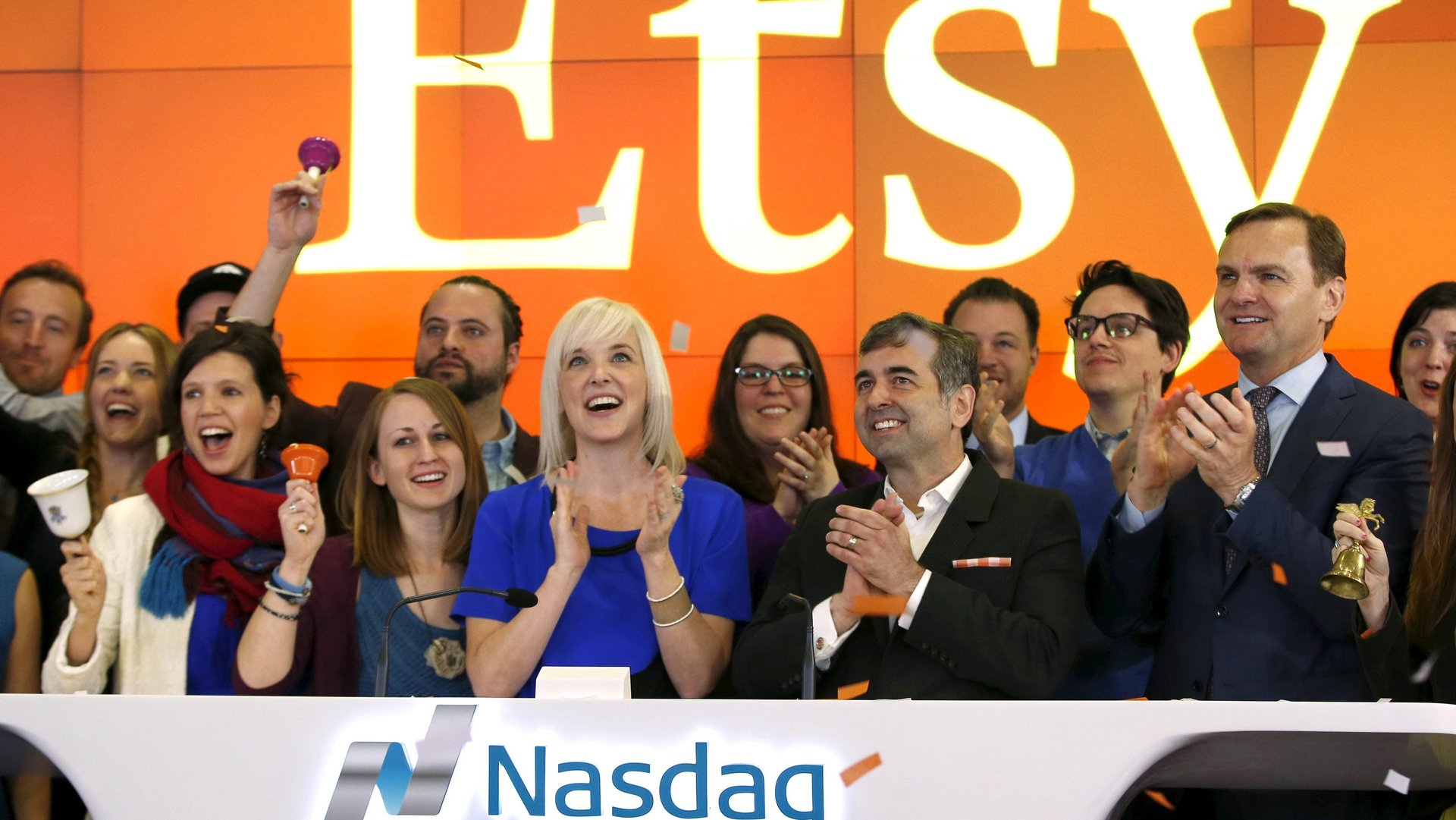All those perks at Etsy—like a $40 million office, yoga, and weaving looms—may be its undoing
Etsy, the online marketplace for handcrafted items, offers its employees amenities like yoga and crafting classes, catered meals twice a week, and a “community loom” for weaving projects in its offices in Brooklyn, which was renovated for $40 million and features irrigated walls to grow plants, and an ambitious composting program, according to Bloomberg Businessweek.


Etsy, the online marketplace for handcrafted items, offers its employees amenities like yoga and crafting classes, catered meals twice a week, and a “community loom” for weaving projects in its offices in Brooklyn, which was renovated for $40 million and features irrigated walls to grow plants, and an ambitious composting program, according to Bloomberg Businessweek.
It’s no surprise that activist investors smelled blood.
black-and-white Capital (it spells its name lowercase) began buying shares and, on May 2, swooped in and demanded change, citing a “historical pattern of ill-advised spending.” This week, private-equity giant TPG Capital, as well as Dragoneer Investment Group, also announced they bought stakes in Etsy.
The new attention is good for shareholders—Etsy’s stock price soared 23% as investors anticipate the company might be sold—but bad for staff. Eighty employees—about 8% of its workforce— as well as chairman and CEO Chad Dickerson, will lose their jobs as the company looks for “value-enhancing” opportunities, the company said. (Etsy declined to comment.)
It’s not just hipster startups like Etsy who feel the wrath of the market. When Walmart said in 2015 money spent on raising wages and training would eat into profits, shares plunged 10%. More recently, analysts excoriated American Airlines for giving its pilots and flight attendants a raise. “This is frustrating,” said one. “Labor is being paid first again. Shareholders get leftovers.”
While Etsy has a devoted following of buyers for its knick knacks who generated $2.84 billion in sales last year, and made it the fourth-most trafficked e-commerce site, it is particularly vulnerable because, like Walmart and American, it is a public company, and investors have no patience for what they deem inefficient uses of their capital, particularly when spent on employees.
The company struggled with slowing growth after its 2015 IPO, and friction with its thousands of sellers over a clunky search engine and what goods are allowed in its online store. Etsy viewed its office culture and environmentally friendly practices as an extension of its business model, which rests on “individuals with diverse roles but all sharing a collective vision of an economy based on community,” according to its IPO filing.
A business based on community that values its employees sounds like a great idea, but it may be a business philosophy only private companies can afford. Otherwise, they find themselves at the mercy of corporate raiders with little patience for composting.